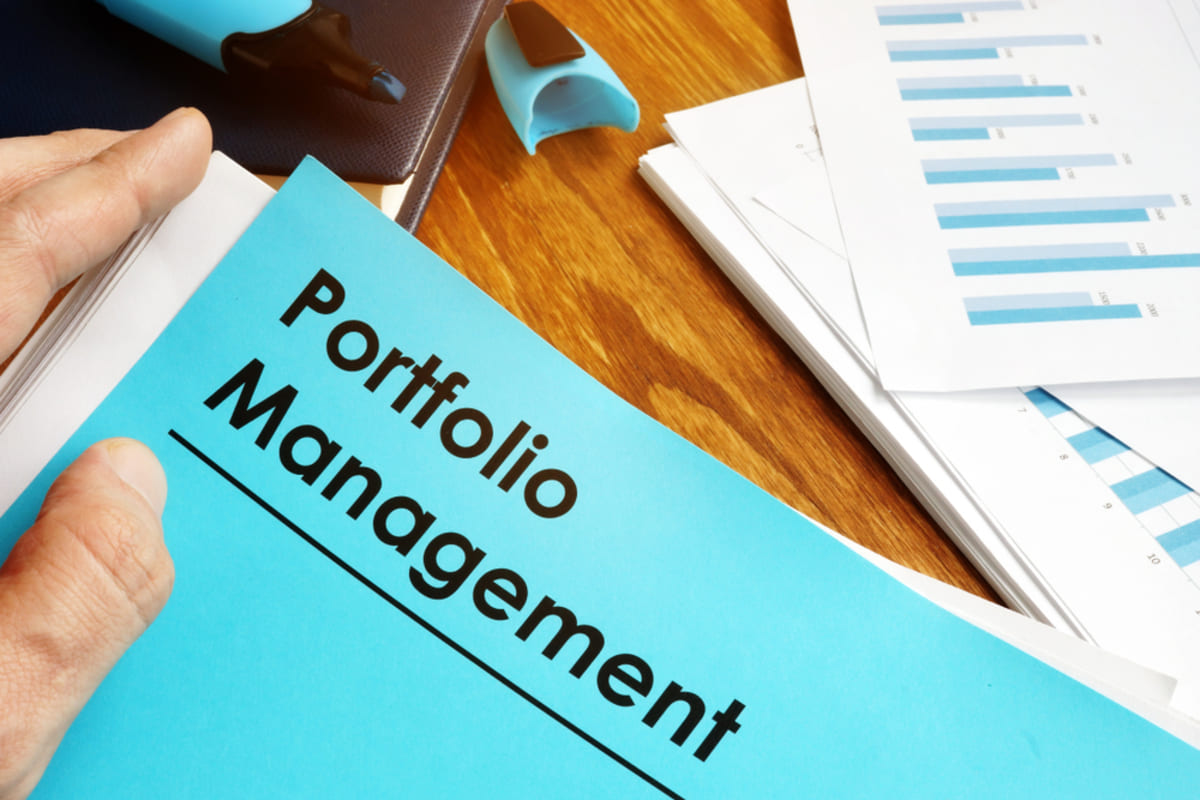
Commercial property portfolio management in another state can present unique challenges and opportunities. The distance can introduce complexities in logistics, local regulations, and market understanding.
However, with the correct strategies and tools, it can also unlock profitable ventures and promote diversification in your portfolio.
In this blog, our team of experts at Brian Properties will explain the ins and outs of managing out-of-state commercial real estate, offering valuable insights for novice and experienced property investors.
Continue reading to discover the key factors to consider before expanding your property portfolio across state lines.
Commercial Real Estate Market Research and Analysis
Understanding market trends, demand, and economic indicators is essential when considering long-distance investments.
In this section, we'll explore these elements further.
Analyzing Market Trends
Different regions experience varying real estate trends. A region may favor industrial properties over retail or office spaces due to local business growth patterns.
The location's economy also affects market trends, with fast-growing cities attracting businesses and amenities.
Besides, national-level factors such as inflation or interest rates can significantly influence a local property's value.
The National Association of Realtors offers comprehensive data on regional commercial property trends, which can help you understand what properties are gaining traction in specific areas.
Evaluating Demand
Demand for commercial space fluctuates based on population density, income levels, employment rates, etc.
For instance, a growing population and rising employment rates indicate increased demand for real estate. By analyzing the demographics of a particular state or region, you can determine whether there's potential for high occupancy rates in your commercial property.
Websites such as Data USA provide free access to public US Government data that can give insights into the demographics and economics of any location in the United States; aiding you with your investment decisions.
Economic Indicators Impacting Real Estate Investment
The economic health of a region plays a crucial role in determining the success and profitability of real estate investments.
In times of high unemployment rates, there might be a decrease in demand for office spaces, as businesses may downsize or struggle to maintain operations.
On the other hand, rising incomes within a community can indicate opportunities for upscale retail establishments, as consumers have more disposable income to spend on luxury goods and services.
Understanding the relationship between economic indicators and real estate is vital for investors to make informed decisions and maximize returns.
Cross-State Investment Partnerships
Entering into cross-state investment partnerships can be a powerful tool to broaden your real estate portfolio while managing the risks of distant investing. By teaming up with other investors or firms, you can pool resources and mitigate risks associated with long-distance investing.
The beauty of these alliances is their potential for synergy. With diverse skill sets and local knowledge at play, partners can complement each other effectively.
However, every partnership needs trust and clear communication as its foundation.
Finding the Right Investment Partner
Finding the right partner is essential to starting on the right foot in a cross-state investment venture. However, how do you go about this?
Networking events and platforms are excellent places to meet like-minded individuals looking for growth opportunities.
Navigating Legal Complexities Together
A hurdle in out-of-state investments involves navigating through different state regulations — zoning laws or tax structures differ vastly between states. Property taxes vary significantly from one U.S state to another.
Your chosen partner should ideally be familiar with these complexities so that together, you can ensure compliance while maximizing profits.
Potential Benefits of Cross-State Partnership
Cross-state partnerships provide an opportunity to diversify your portfolio geographically, spreading the investment risks across different markets while potentially increasing returns through access to flourishing property markets beyond your local area.
- Risk mitigation: Shared risk can lead to less individual financial strain in the case of market downturns.
- Diversification: Spreading investments across various states helps diversify your portfolio, reducing exposure to local economic swings.
- Access to new opportunities: A partner's network and expertise could open doors you might not have reached.
Having a shared vision and understanding is crucial for success in any partnership, especially in cross-state investment ventures. You're not just investing money; you're also investing time, resources, and trust into these partnerships.
Remote Property Management Monitoring and Security
For long-distance property management, remote monitoring is your eyes on the ground. It's about leveraging technology to keep an eye on your investment when you can't physically be there.
For example, consider a Ring doorbell camera. These cameras allow you to observe the activity at your door from any location.
But for landlords with out-of-state properties, they offer more than just convenience. They give peace of mind that your building entrances are secure and monitored 24/7.
The Role of Security Systems
Commercial-grade security systems play a critical role in safeguarding assets across state lines. With features like real-time alerts, video surveillance, access control systems, and fire detection capabilities, these technologies help mitigate potential risks associated with property damage or unauthorized entry.
Moreover, most modern security system providers have made strides toward integrating their services into mobile apps, making managing multiple properties even easier.
Beyond Physical Safety: Cybersecurity Measures
While physical safety measures are essential for protecting buildings and tenants alike, cybersecurity needs careful attention as part of remote portfolio management strategy since cyber threats could compromise sensitive data related to tenants or business operations.
Partnering with Local Security Firms
In addition to implementing the right technology, consider partnering with local security firms. They offer on-the-ground support that can respond quickly if a situation arises and ensure ongoing safety for tenants and your property.
So, while not physically present, ensure you have reliable eyes and ears caring for your investment.
Create a Diverse Portfolio
Diversification is an essential element to consider as your real estate portfolio develops.
However, what does that mean in the context of property investment? Just like spreading investments across various stocks can reduce risk and enhance potential returns, so can owning properties across different states.
Diversifying your portfolio geographically gives you access to more opportunities for growth. Different markets have unique strengths and weaknesses — one city might be experiencing a surge in retail demand while another is seeing industrial expansion. You're not tied down by the economic ups and downs of an area by investing nationwide.
Investing in multiple types of commercial properties, such as office buildings, retail spaces, or industrial sites further helps with diversification. This variety lets you tap into diverse revenue streams and decreases reliance on one type of tenant.
 Local Property Management Regulations and Compliance
Local Property Management Regulations and Compliance
Navigating local regulations can feel like walking through a maze. However, with the right guidance, it becomes less daunting. Understanding these rules is essential for any long-distance commercial property investor.
Different states possess distinct edicts dictating what can be done with properties, such as building codes, zoning laws, and ordinances. Before investing, familiarize yourself with the local building codes and regulations to ensure you comply.
Zoning Laws
Zoning laws control land use within certain areas and define how you can use your property. Violating them could lead to legal issues or fines.
In some places, you may need special permission to operate certain types of businesses or services from your premises - always check this out beforehand.
Building Codes
The standards set by building codes ensure the safety and quality of construction work on properties. If repairs or improvements are needed, they must comply with these standards.
The Importance of Local Expertise
At Brian Properties, we understand that getting up-to-speed on local regulation specifics takes time — precious time that investors often don't have. To help our clients navigate the regulatory landscape smoothly, we've built relationships with local experts.
We tap into their knowledge to help you stay compliant and avoid costly legal issues. This helps protect your investments and lets you focus more on growing your portfolio.
Property Management and Leasing
Managing a commercial property portfolio isn't just about buying properties. It's also about ensuring they're well-managed and leased effectively to drive consistent revenue.
At Brian Properties, we've learned that the right team can make all the difference.
Finding a Reliable Property Management Team
Getting help with managing your properties is crucial when expanding your portfolio. Search for a team you can count on, particularly if your properties are in another state.
Look for experienced professionals who know local laws and regulations like we do at Brian Properties.
Leasing Strategies for Maximum Returns
Your leasing strategy should be designed to minimize vacancies and maximize income from rents. This might mean offering incentives or using aggressive marketing strategies during slow market periods.
An experienced property management firm will advise on how much rent to charge based on similar properties in the area as well as broader economic factors.
Tenant Management Made Easy
Tenant turnover costs money — lost rent, cleaning fees, advertising costs - so keeping tenants happy is essential. Regular maintenance checks not only fix problems before they become expensive issues but show tenants that their comfort matters to us.
A good relationship between landlord and tenant reduces disputes.
 Grow Your Portfolio With Chicago Commercial Property Managers
Grow Your Portfolio With Chicago Commercial Property Managers
Long-distance commercial property investment is a viable strategy for broadening your real estate portfolio and minimizing investment risk. By using the right tools and strategies, you can effectively manage and grow your property investments, regardless of distance.
At Brian Properties, we offer in-depth expertise and comprehensive services to facilitate successful long-distance commercial property investment. Whether you are an experienced investor or just starting, we're here to help you as a commercial portfolio manager and navigate the journey to success.
Contact us today for more information.
Similar Posts
Jan
Commercial Property Management Tips: Choosing Prime Commercial Spaces
Investing in commercial real estate, especially in a dynamic city like Chicago, offers a gateway to diversify your investment portfolio and reap the...
Sep
A Profitability Secret: Commercial Real Estate Brokers Chicago
As the Chicago commercial real estate market develops and the landscape shifts, landlords and investing professionals are becoming increasingly aware...
Oct
Why Commercial Real Estate Broker Services Are a Landlord's Asset
While it's true that commercial real estate investors and landlords are often high-net-worth individuals and capable of dealing with financial...



